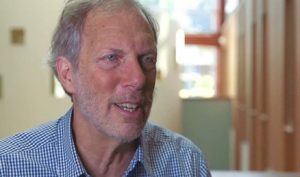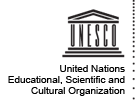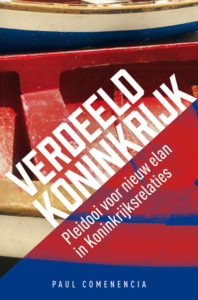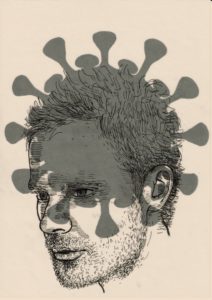
Prof.dr. Robert Pollin
The coronavirus disease (COVID-19) caught the world unprepared, and the economic, social and political consequences of the pandemic are expected to be dramatic, in spite of recent pledges by leaders of the Group of 20 (G20) major economies to inject $5 trillion into the global economy in order to spur economic recovery.
But what lessons can we learn from this pandemic? Will the coronavirus crisis lead to a new way of organizing society — one that conceives of a social and political order where profits are not above people?
In this exclusive interview with Truthout, public intellectual Noam Chomsky and economist Robert Pollin tackle these questions.

Noam Chomsky
C. J. Polychroniou: Noam, what are some of the deeper lessons we can draw from the global health crisis caused by coronavirus?
Noam Chomsky: Pandemics have been predicted by scientists for a long time, particularly since the 2003 SARS pandemic, which was caused by a coronavirus similar to COVID-19. They also predict that there will be further and probably worse pandemics. If we hope to prevent the next ones, we should therefore ask how this happened, and change what went wrong. The lessons arise at many levels, from the roots of the catastrophe to issues specific to particular countries. I’ll focus on the U.S., though that’s misleading since it is at the bottom of the barrel in competence of response to the crisis.
The basic factors are clear enough. The damage was rooted in a colossal market failure, exacerbated by the capitalism of the neoliberal era. There are particularities in the U.S., ranging from its disastrous health system and weak social justice ranking — near the bottom of the OECD — to the wrecking ball that has taken over the federal government.
The virus responsible for SARS was quickly identified. Vaccines were developed, but were not carried through the testing phase. Drug companies showed little interest: They respond to market signals, and there’s little profit in devoting resources to staving off some anticipated catastrophe. The general failure is illustrated dramatically by the most severe immediate problem: lack of ventilators, a lethal failure, forcing doctors and nurses to make the agonizing decision of who to kill.
The Obama administration had recognized the potential problem. It ordered high-quality low-cost ventilators from a small company that was then bought by a large corporation, Covidien, which shelved the project, apparently because the products might compete with its own high-cost ventilators. It then informed the government that it wanted to cancel the contract because it was not profitable enough.
So far, normal capitalist logic. But at that point the neoliberal pathology delivered another hammer blow. The government could have stepped in, but that’s barred by the reigning doctrine pronounced by Ronald Reagan: Government is the problem, not the solution. So nothing could be done.
We should pause for a moment to consider the meaning of the formula. In practice, it means that government is not the solution when the welfare of the population is at stake, but it very definitely is the solution for the problems of private wealth and corporate power. The record is ample under Reagan and since, and there should be no need to review it. The mantra “Government bad” is similar to the vaunted “free market” — easily skewed to accommodate exorbitant claims of capital.
Neoliberal doctrines entered for the private sector too. The business model requires “efficiency,” meaning maximal profit, consequences be damned. For the privatized health system, it means no spare capacity: just enough to get by in normal circumstances, and even then, bare bones, with severe cost to patients but a good balance sheet (and rich rewards for management). When something unexpected happens, tough luck.
These standard business principles have plenty of effects throughout the economy. The most severe of these concern the climate crisis, which overshadows the current virus crisis in its import. Fossil fuel corporations are in business to maximize profits, not to allow human society to survive, a matter of indifference. They are constantly seeking new oil fields to exploit. They do not waste resources on sustainable energy and dismantle profitable sustainable energy projects because they can make more money by accelerating mass destruction.
The White House, in the hands of an extraordinary collection of gangsters, pours fuel on the fire by its dedication to maximizing fossil fuel use and dismantling regulations that hinder the race to the abyss in which they proudly take the lead.
Read more
 The University of West Indies (UWI) has a leading role in open access initiatives in the region. UWI is a multi campus University, with major campuses situated in Jamaica (Mona), Trinidad & Tobago (St. Augustine) and Barbados (Cave Hill). UWI at Mona offers online open access to full-text scholarly output from UWI within its MORD-Mona Online Research Database and institutional repository registered in OpenDOAR. UWI Libraries and UWI Digital Library Services Centre (DLSC) at the St. Augustine Campus, manage an institutional repository of UWI. UWI is also a member of the Networked Digital Library of Theses and Dissertations (NDLTD).
The University of West Indies (UWI) has a leading role in open access initiatives in the region. UWI is a multi campus University, with major campuses situated in Jamaica (Mona), Trinidad & Tobago (St. Augustine) and Barbados (Cave Hill). UWI at Mona offers online open access to full-text scholarly output from UWI within its MORD-Mona Online Research Database and institutional repository registered in OpenDOAR. UWI Libraries and UWI Digital Library Services Centre (DLSC) at the St. Augustine Campus, manage an institutional repository of UWI. UWI is also a member of the Networked Digital Library of Theses and Dissertations (NDLTD).
In ROAR and in OpenDOAR, are registered the repositories of the University of West Indies, the Public Digital Library e-Jamaica, and MANIOC. No mandates registered in ROARMAP.
In the Caribbean, open access initiatives promote regional collaboration and integration of digital collections, with support from foreign and international agencies for digitization and preservation of patrimonial documents and preserving memories, examples:
The Digital Library of the Caribbean (dLOC), established in 2004, is an open access cooperative, multilingual and multi-institutional digitization project of partners within the Caribbean and circum-Caribbean that provides users with open access to Caribbean cultural, historical and research materials held in archives, libraries, and private collections.
Another example of cross-institutional open access initiative is MANIOC, a scientific and cultural open access repository specializing on the Caribbean, the Amazon, the Guyana Plateau and regions or areas of interest related to these territories.
Several digital libraries from the region offer open access to special collections digitized because of their cultural, historical and research significance for countries in the Caribbean, ex.: National Library and Information System Authority (NALIS) Digital Library of Trinidad and Tobago, Digital Collections at University of West Indies St. Augustine in Trinidad and Tobago, National Library of Jamaica Digital Collections, among other.
For subject open access initiatives, several examples can be mentioned:
On legislation:
CARIBLEX, the International Labor Organization’s database of national labour legislation for the 13 ILO member States of the English- and Dutch-speaking Caribbean is maintained by the ILO’s Subregional Office for the Caribbean.
Carilaw (Caribbean Law Online) coordinated by the Faculty of Law Library, Cave Hill Campus of the University of the West Indies.
Go to: http://www.unesco.org/the-caribbean



 ‘Deze publicatie is een eigen capita selecta over de totstandkoming van de autonomie van de voormalige Nederlandse Antillen en van de ontwikkelingen die geleid hebben tot de in 2010 van kracht geworden nieuwe rechtsorde. Tegelijkertijd is het een pleidooi voor nieuw elan in de Koninkrijksrelaties, gericht op een voorspoedige toekomst voor de respectievelijke rijksdelen’, schrijft Comenencia in de samenvatting.
‘Deze publicatie is een eigen capita selecta over de totstandkoming van de autonomie van de voormalige Nederlandse Antillen en van de ontwikkelingen die geleid hebben tot de in 2010 van kracht geworden nieuwe rechtsorde. Tegelijkertijd is het een pleidooi voor nieuw elan in de Koninkrijksrelaties, gericht op een voorspoedige toekomst voor de respectievelijke rijksdelen’, schrijft Comenencia in de samenvatting.
In kort bestek weet Comenencia de ontmanteling van de voormalige Nederlandse Antillen helder samen te vatten. De raak gekozen citaten illustreren de tijdgeest ten tijde van de cruciale momenten in die geschiedenis. De auteur, lid van de Raad van State van het Koninkrijk, weet ook de voor de gemiddelde leek lastiger onderwerpen, zoals de totstandkoming van het Statuut en het voortslepende conflict over de Geschillenregeling, toegankelijk te beschrijven.
Comenencia is niet bang om de schaduwzijde van de verhoudingen binnen het Koninkrijk te benoemen. Het hoofdstuk Vooruitblik: verschraling tegengaan, Statuut beter benutten, begint met de vaststelling: ‘Al vaker is geconstateerd dat de Koninkrijksrelaties vandaag de dag, voor de meeste betrokkenen, een hoofdpijndossier vormen. Op de eilanden verklaren politici niets tegen Haagse betrokkenheid te hebben (zij willen, naar eigen zeggen, zelfs intensief samenwerken), te veel bemoeienis is waar zij niet op zitten te wachten. En in Den Haag varieert de mening van sceptici tussen, aan de ene kant, de berusting tot elkaar ‘veroordeeld’ te zijn en, aan het andere uiterste, de eilanden liever kwijt dan rijk te zijn.’
Comenencia noemt zijn boek een cri de coeur. Op dezelfde manier doorgaan als tot nu toe, is in ieder geval geen optie, concludeert hij in de Samenvatting. Het is tijd om met elkaar duidelijke keuzes te maken voor de toekomst.
De ondertitel, Pleidooi voor een nieuw elan in Koninkrijksrelaties, maakt uiteraard nieuwsgierig naar de aanbevelingen die Comenencia tegen het einde van het boek aan de lezer voorlegt. Die aanbevelingen moeten de weg wijzen naar een nieuw elan in Koninkrijksrelaties.
De aanbevelingen op een rijtje:
– Acceptatie door alle Koninkrijkspartners dat bepaalde problemen inherent zijn aan de extreme kleinschaligheid van de eilanden en dus van blijvende aard zijn.
– Meer thema’s op Koninkrijksniveau aanpakken en oplossen.
– Differentiatie, maatwerk accepteren in toepassing Statuut
– Meer uitwisseling van expertise
– Permanent in gesprek blijven
– Meer Caribische interventies in Staten-Generaal
– Vertegenwoordigingen versterken
Al zien de aanbevelingen en aanvullende opmerkingen van Comenencia er misschien uit alsof je door een open deur de toekomst binnenwandelt, ze bieden de mogelijkheid om per onderwerp hierover van gedachten te wisselen. Zodat de wens van de auteur uitkomt: dat nieuwe elan.
Paul Comenencia – Verdeeld Koninkrijk. Pleidooi voor een nieuw elan in Koninkrijksrelaties.
Uitgeverij Eburon, Utrecht 2020.
ISBN 978 94 5301 290 4 (paperback) – ISBN 978 94 6301 294 2 (e-book)




Paolo Giordano. Ills.: Joseph Sassoon Semah
‘Als het om besmetting gaat, is gebrek aan solidariteit bovenal een gebrek aan verbeeldingskracht. De gemeenschap in tijden van besmetting is de totaliteit van alle mensen op aarde.’
CoV-2, die de grootste bedreiging vormt van onze tijd, raast door de geglobiseerde wereld. De epidemie dwingt ons onszelf te beschouwen als behorend bij een collectief. In tijden van besmetting zijn we één enkel organisme; we worden weer een gemeenschap. Paolo Giordano is niet bang ziek te worden, maar wel bang dat de beschaving een kaartenhuis blijkt te zijn, dat alles wordt uitgewist. Maar hij is vooral bang dat als de epidemie direct over is, alles uiteindelijk hetzelfde blijft.
Van eind februari tot begin maart schrijft de Italiaanse auteur Paolo Giordano In tijden van besmetting om vooral niet te missen wat deze epidemie over onszelf vertelt. De corona-epidemie, die identiteit en cultuur overstijgt, maakt niet alleen duidelijk op hoeveel niveaus we met elkaar zijn verbonden, maar ook de complexiteit van de wereld waarin we leven. ‘Aan deze besmetting kunnen we afmeten hoezeer onze wereld is geglobaliseerd, verweven is geraakt, een ontwarbare kluwen is geworden.’
Voor de auteur van de bestseller De eenzaamheid van de priemgetallen (2009) en cum laude afgestudeerd in natuurkunde, is wiskunde een onmisbaar instrument om te begrijpen wat er aan de hand is, want wiskunde is de wetenschap van relaties. De besmetting is een infectie van het netwerk van onze onderlinge betrekkingen, aldus Paolo Giordano. De besmetting als kille, wiskundige abstractie is ook een groot spel, een spel van het quarantainedilemma. Paolo Giordano legt uit wat het SIR-model is, het alles onthullende geraamte van elke epidemie. SARS-COV-2 is het virus, COVID-19 de ziekte. Hij onderscheidt drie groepen: de vatbaren (Susceptibles), de besmettelijken (Infectious) en de mensen die niet meer ziek zijn (Recovered), waarbij de vatbaren de belangrijkste is: zevenenhalf miljard personen maken onderdeel uit van deze groep.
De groei van het virus is niet-lineair, niet constant, maar neemt voortdurend sneller toe. Een besmetting begint als kettingreactie, steeds meer personen worden steeds sneller besmet. Hoe snel hangt af van een getal, de verborgen kern van de epidemie, dat wordt aangeduid met het symbool er-nul, elke epidemie heeft haar eigen er-nul, aldus Paolo Giordano. Read more
- door: Robert-Henk Zuidinga

Jean Pierre Rawie Foto: Uitgeverij Prometheus
Oude gedichten (1987) van Jean Pierre Rawie bevat de gedichten uit zijn eerste bundels, Het meisje en de dood (1979), Intensive care (1982) en Kwade trouw (1986), alsmede een aantal ‘Liederen in opdracht’ en vertalingen. De bundels Woelig stof (1989) en Onmogelijk geluk (1992) bereikten een, voor oorspronkelijke Nederlandse poëzie ongebruikelijk, groot publiek.
Najaar 1993 verzorgde de dichter een aantal werk- en hoorcolleges aan de Letterenfaculteit van de Rijksuniversiteit Groningen.
Bij romans en verhalen kun je er gewoonlijk vanuit gaan dat ze voor een belangrijk deel autobiografisch zijn. Bij toneelstukken is dat precies omgekeerd: niet veel mensen zullen zich afvragen of het werk van Pinter of Beckett autobiografisch geïnspireerd is. De eerste vraag van een biografisch interview met een dichter dient dan ook te zijn: hoe zit dat bij poëzie?
Je leest wel eens dat er vroeger op de Kring een heel verlopen type kwam, van wie de mensen zeiden: daar heeft Roland Holst zijn Winter aan zee voor geschreven. Dat soort dingen moet je helemaal niet weten. Het is heel goed dat we onzeker zijn over Beatrice en Laura. Het heeft ontzettend weinig zin om bijvoorbeeld over mijn verschillende amoures te spreken. Die spelen natuurlijk wel een grote rol in mijn leven en duiken ook in mijn poëzie op, maar daar heb je zo weinig aan. Ik heb vaak meegemaakt dat de verkeerde vrouwen dachten dat een bepaald gedicht over hun ging; terwijl ik zelf natuurlijk altijd wel de aanleiding weet, maar daar heeft niemand wat aan, want dan bemoeilijk je de identificatie. Dat is niet goed.
Dus de biografische kennis over een dichter is niet relevant?
Volstrekt niet, volgens mij. De belangstelling voor schrijvers als persoon heeft een veel te hoge vlucht genomen in de afgelopen decennia. Het vervelende is, dat het ook weer omdraait. Het succes van mijn laatste bundels, bijvoorbeeld, wordt door bepaalde kunstbroeders gaarne op het conto van de media in plaats van op dat van de kwaliteit van mijn werk geschreven, terwijl die media zich er pas mee zijn gaan bemoeien toen het al een tijd in de top-tien stond.
De televisie heeft de functie van de krant voor een groot gedeelte overgenomen. Dus als je de gelegenheid krijgt op de televisie iets te zeggen – de enkele keer dat een dichter daar iets mag zeggen – en je leest daarbij een gedicht voor, en daarna gaan er allemaal mensen naar de boekhandel die zeggen: ja, er was een man met een baardje op de televisie die een mooi gedicht voorlas, dan ligt het toch aan dat gedicht en niet aan het feit dat je kop op de buis was.
En het wil er bij mij ook niet in dat iemand door een televisieprogramma of een interview in de krant naar een boekhandel gaat en dertig gulden neertelt voor een bundel die hij eigenlijk niet wil hebben. Dat geloof ik niet.
Dat beantwoordt niet mijn vraag. Leest men een gedichtenbundel anders met biografische kennis over de dichter?
Het ligt andersom. Als je getroffen bent door een bepaalde dichter, dan wil je er meer over weten. Dat is begrijpelijk. Poëzie is in het algemeen maar een kleine hoeveelheid tekst. En sommige biografieën van dichters zijn geweldig leuk, zoals die van Byron. Maar het voegt inderdaad niet verschrikkelijk veel toe. Natuurlijk is alle poëzie wel geschreven vanuit ervaringen die je zelf opgedaan hebt. Ik kan tenminste niet schrijven over iets wat ik niet zelf heb meegemaakt. Rilke zei dat ooit heel mooi: Gedichte sind keine Gefühle, die hat man früh genug; sondem es sind Erfahrungen.
Alleen: het is gestileerd en tot een kunstwerk gemaakt. Dat is ook altijd het probleem als je ergens voorleest. Dan lees je in een uur tijd een aantal gedichten voor en aangezien het in die poëzie, bij mij althans, wat ernstig van toon is, om het voorzichtig uit te drukken, en het allemaal over ‘ik’ gaat – dat is nu eenmaal zo bij lyriek, dat is een heel onbeleefde kunstvorm wat dat betreft -, heb je mensen die denken: nou, die man heeft het niet makkelijk.
Ze realiseren zich dan niet dat het allemaal gestileerd is, en dat dus weliswaar de oorsprong autobiografisch is, maar dat de bedoeling van het gedicht is dat de lezer die ‘ik’ wordt. Dat moet je nog vaak uitleggen. Het gaat om het effect dat poëzie sorteert bij de lezer en niet om de gevoelsuitstorting van de dichter.
Read more
 COVID-19 has taken the world by storm. Hundreds of thousands are infected (possibly many times more than the confirmed cases), the list of dead is growing exponentially longer, and capitalist economies have come to a standstill, with a global recession now virtually inevitable.
COVID-19 has taken the world by storm. Hundreds of thousands are infected (possibly many times more than the confirmed cases), the list of dead is growing exponentially longer, and capitalist economies have come to a standstill, with a global recession now virtually inevitable.
The pandemic had been predicted long before its appearance, but actions to prepare for such a crisis were barred by the cruel imperatives of an economic order in which “there’s no profit in preventing a future catastrophe,” Noam Chomsky points out in this exclusive interview for Truthout. Chomsky is emeritus professor of linguistics at MIT and laureate professor at the University of Arizona, author of more than 120 books and thousands of articles and essays. In the interview that follows, he discusses how neoliberal capitalism itself is behind the U.S.’s failed response to the pandemic.
C.J. Polychroniou: Noam, the outbreak of the new coronavirus disease has spread to most parts of the world, with the United States now having more infected cases than any other country, including China, where the virus originated. Are these surprising developments?
Noam Chomsky: The scale of the plague is surprising, indeed shocking, but not its appearance. Nor the fact that the U.S. has the worst record in responding to the crisis.
Scientists have been warning of a pandemic for years, insistently so since the SARS epidemic of 2003, also caused by a coronavirus, for which vaccines were developed but did not proceed beyond the pre-clinical level. That was the time to begin to put in place rapid-response systems in preparation for an outbreak and to set aside spare capacity that would be needed. Initiatives could also have been undertaken to develop defenses and modes of treatment for a likely recurrence with a related virus.
But scientific understanding is not enough. There has to be someone to pick up the ball and run with it. That option was barred by the pathology of the contemporary socioeconomic order. Market signals were clear: There’s no profit in preventing a future catastrophe. The government could have stepped in, but that’s barred by reigning doctrine: “Government is the problem,” Reagan told us with his sunny smile, meaning that decision-making has to be handed over even more fully to the business world, which is devoted to private profit and is free from influence by those who might be concerned with the common good. The years that followed injected a dose of neoliberal brutality to the unconstrained capitalist order and the twisted form of markets it constructs.
The depth of the pathology is revealed clearly by one of the most dramatic — and murderous — failures: the lack of ventilators that is one the major bottlenecks in confronting the pandemic. The Department of Health and Human Services foresaw the problem, and contracted with a small firm to produce inexpensive, easy-to-use ventilators. But then capitalist logic intervened. The firm was bought by a major corporation, Covidien, which sidelined the project, and, “In 2014, with no ventilators having been delivered to the government, Covidien executives told officials at the [federal] biomedical research agency that they wanted to get out of the contract, according to three former federal officials. The executives complained that it was not sufficiently profitable for the company.”
Doubtless true.
Read more
 ‘Deze publicatie is een eigen capita selecta over de totstandkoming van de autonomie van de voormalige Nederlandse Antillen en van de ontwikkelingen die geleid hebben tot de in 2010 van kracht geworden nieuwe rechtsorde. Tegelijkertijd is het een pleidooi voor nieuw elan in de Koninkrijksrelaties, gericht op een voorspoedige toekomst voor de respectievelijke rijksdelen’, schrijft Comenencia in de samenvatting.
‘Deze publicatie is een eigen capita selecta over de totstandkoming van de autonomie van de voormalige Nederlandse Antillen en van de ontwikkelingen die geleid hebben tot de in 2010 van kracht geworden nieuwe rechtsorde. Tegelijkertijd is het een pleidooi voor nieuw elan in de Koninkrijksrelaties, gericht op een voorspoedige toekomst voor de respectievelijke rijksdelen’, schrijft Comenencia in de samenvatting.






